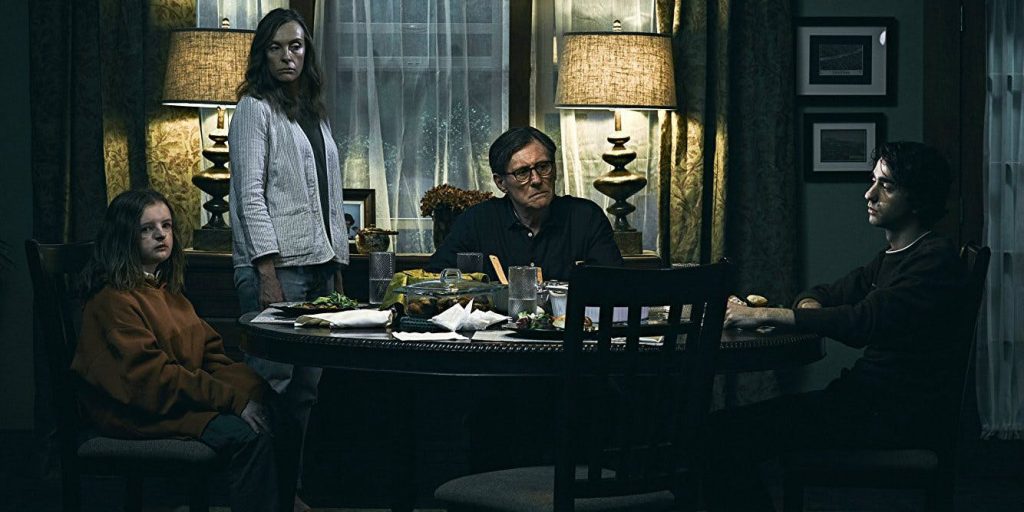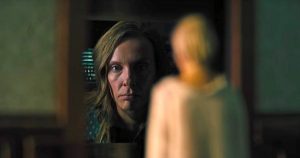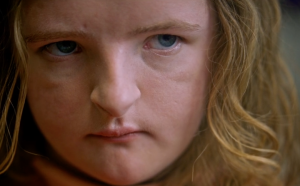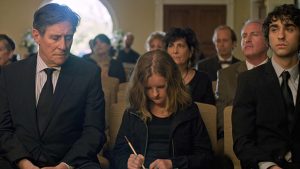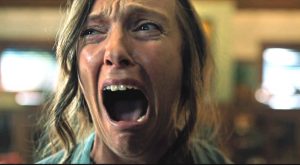Written and Directed by Ari Aster | 127 min | On Demand
A family living in a lovely, wood-panelled home in Utah is grieving the death of the grandmother. At the funeral Annie (Toni Collette), talks about her mother’s secretive nature. She was estranged from her mother for years, we learn. Back at home, Annie is an artist who makes miniature homes and dioramas of things that have happened in her life. It feels a little like we were seeing the events of the film take place in Annie’s “dollhouses”.
Annie and her husband Steve (Gabriel Byrne) are super-protective of 13-year-old daughter Charlie (Milly Shapiro), who seems withdrawn and socially awkward, and at first only she seems to be aware of the grandmother haunting the house, while the older pothead son, Peter (Alex Wolff), is mostly ignored.
The film feels like a much darker Poltergeist, how the family is either trying to hold together in the face of mounting tragedy or tear itself apart from within. Major props to Ari Aster and his DP Pawel Pogorzelski for the thoughtful, suspense-building movement of the camera and the composer, Colin Stetson, for delivering a genuinely unsettling score, essential for this kind of film. It’s full of wonderful, if fleeting, visual detail. It seeds its creep, in deliberate, effective ways.
This is really Toni Collette’s picture. The actor deserves all the accolades she gets for her authentic emotional commitment here. Horror movies released earlier in the year rarely get awards come the year’s end—with the recent exception of Get Out—but this is a performance deserving to be remembered, especially considering the usually reliable Byrne is so sedate in his role.
At its core, Hereditary is a family drama about mental illness. It leaves you unsettled after you depart the cinema—I felt hollowed out by what I’d seen, and the characters’ terrible fate. But it also commits to its supernatural conceit to a point where it goes overboard, taking us somewhere almost laughable. I don’t think it ruins what went before—the journey through this particular darkness is worth taking—but the way it tips into camp explicitness of the finale keeps the film from achieving the greatness of something like Don’t Look Now, a classic of familial and supernatural dread.





